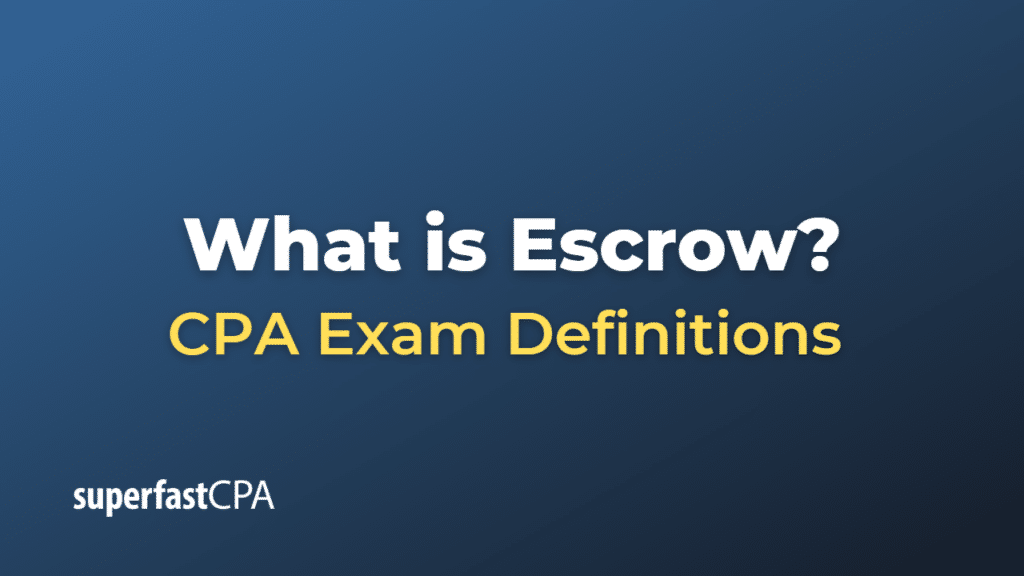Escrow
Escrow is a financial arrangement where a third party holds and regulates payment of the funds required for two parties involved in a given transaction. This ensures that transactions are carried out according to the agreed terms. Escrow services provide a higher level of security by keeping the payment in a secure escrow account, which is only released when all of the terms of an agreement are met as overseen by the escrow company.
Escrow is commonly used in various types of business transactions, but it’s particularly prevalent in real estate. When buying a home, for example, escrow can be used to ensure that the buyer deposits the necessary funds, the seller transfers the title to the home, and that the title is clear (i.e., free of liens or claims).
The escrow agent (or escrow company) collects the money, the signed deed, and any other necessary documents. When all conditions of the sale are met, the escrow agent releases the funds to the seller, and the deed to the buyer.
This helps make transactions more secure by keeping the payment in a neutral third-party account that is released only when all of the terms of the agreement are met. Escrow services are particularly beneficial in transactions where large amounts money are involved and a certain period of time needs to pass in order for all conditions to be fulfilled before money is transferred.
Example of Escrow
Here’s an example of how escrow works in a real estate transaction:
Let’s say Jane wants to buy a house from Bob. They agree on a purchase price of $300,000. To make sure the transaction goes smoothly, they decide to use an escrow service. Here’s a step-by-step breakdown:
- Jane deposits the agreed upon purchase money into an escrow account, and Bob deposits the deed for the house into the same account. The escrow service holds both items.
- The escrow service confirms that the deed is in order and that Jane’s financing is ready.
- Once everything is confirmed, the escrow service gives Bob the $300,000 from the escrow account, and Jane receives the deed to the house.
- If there are any contingencies or conditions that were outlined in the sales agreement (such as passing a home inspection or the buyer securing a mortgage), these must be met before the escrow will release the funds to the seller and the deed to the buyer.
- If something goes wrong—for example, if the home inspection uncovers a serious issue—the escrow service returns the funds to Jane. She might choose to negotiate a lower price with Bob, or walk away from the deal altogether.
In this way, the escrow service helps to protect both the buyer and the seller by ensuring that all agreed-upon conditions are met before the transaction is finalized. It’s a neutral third party that can hold and regulate payment and documents and disburse them according to the agreement between the parties.












